Published on June 6, 2024
Is K-Pop going K-aput?
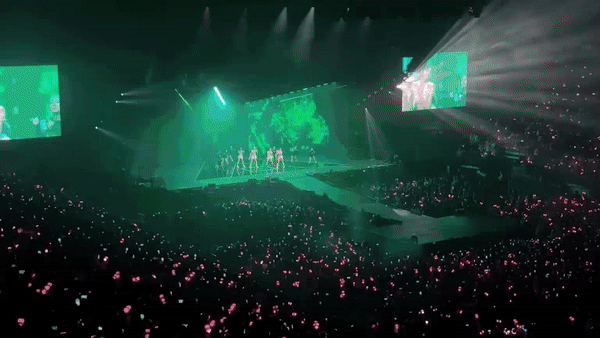
The Korean Wave has seen K-Drama, K-Food and K-Pop spread worldwide.
By now, I think almost the entire world has heard of K-Pop (think Gangnam Style and BTS). But there’s also K-Dramas that have captivated audiences, bringing in billions of dollars for the likes of Netflix, and the global phenomenon that is Korean fried chicken.
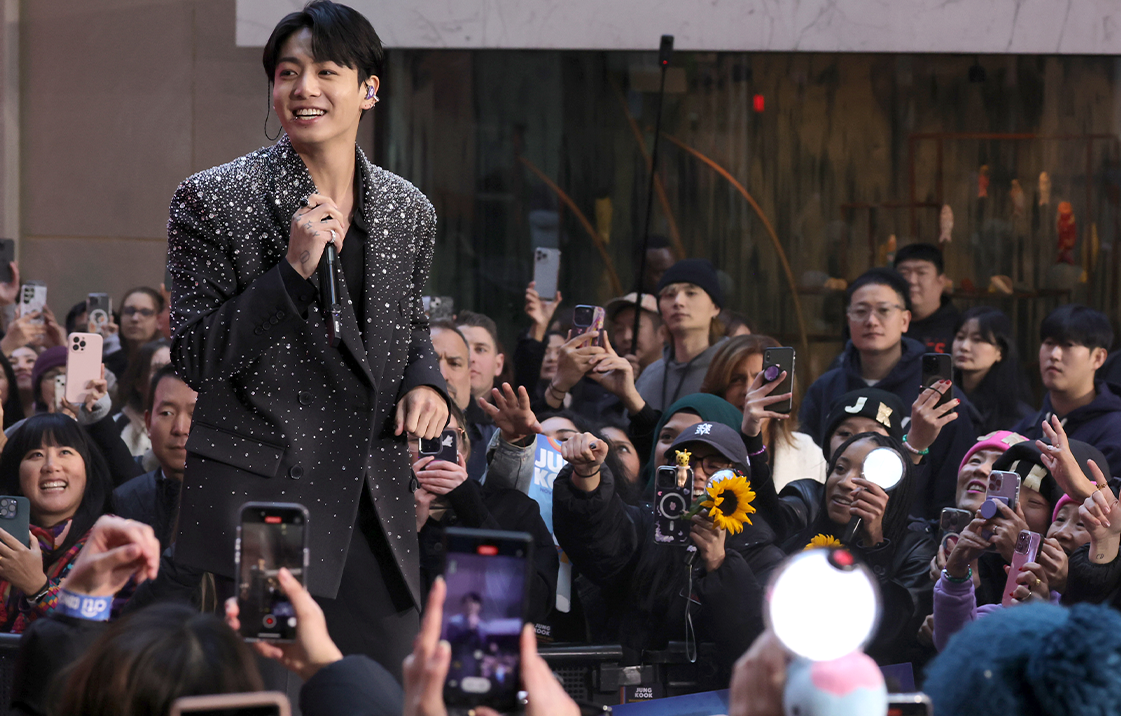
All the above, and more, fall within the ‘Korean Wave’, known as ‘hallyu’ in Korean – a broad umbrella term that refers to the global success of South Korean cultural exports.
But is the Korean Wave showing signs of receding?
There’s ongoing debate about the status and future of the Korean Wave with some arguing that it reached its peak around the pandemic. So it’s a good time to reflect on why that wave may be subsiding.

Politics & Society
Why South Korea’s young men are turning conservative
Fans increasingly disillusioned
South Korea is in fact one of the most ethnically homogenous countries in the world. More than 99 per cent of South Koreans identify as ethnically Korean – with increased immigration, the country is slowly becoming more multicultural.
But it still has deeply ingrained ethnocentric (the belief that one's own ethnic group is the centre of all things) and nationalistic attitudes toward the outside world.
My research examines whether the South Korean government's soft-power strategies and visions of cultural expansion through the Korean Wave are incompatible with those attitudes – something many fans of South Korean culture and more advanced learners of the language eventually encounter.
There are several examples where enthusiastic fans, particularly from mainland China and Southeast Asia who were instrumental in the Korean Wave’s early success, have become increasingly disillusioned.
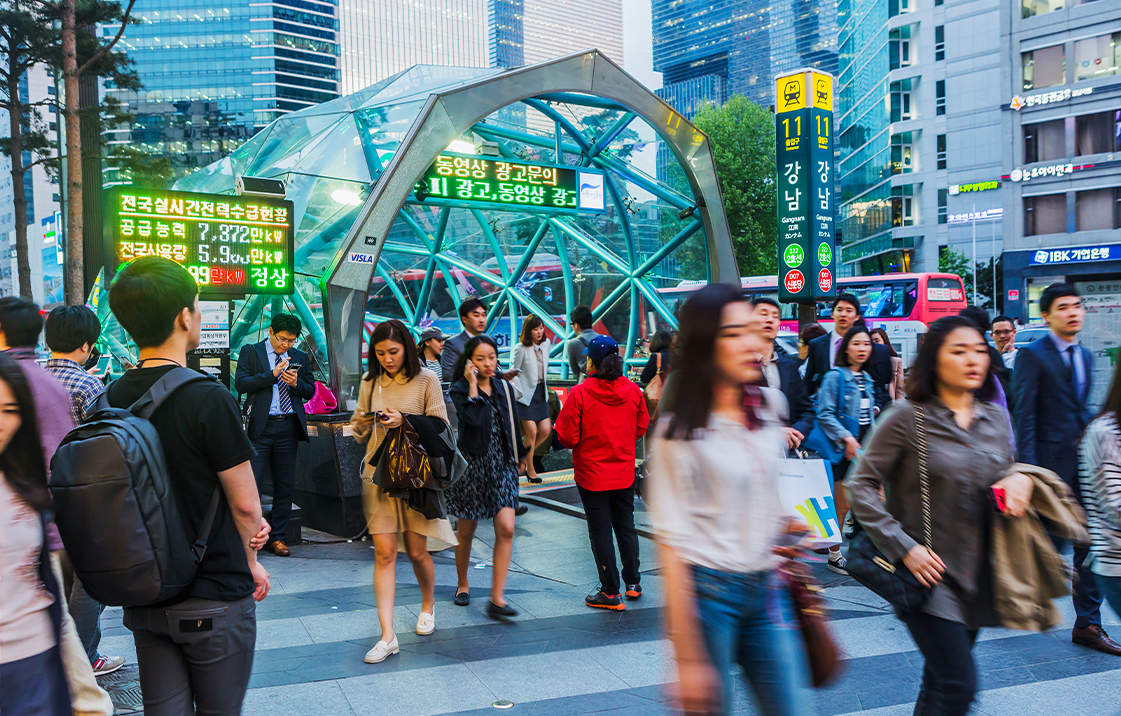
This is often because the source of the pop culture they have come to love (and consume), contains "political gaffs", cultural appropriation or racist stereotypes.
On top of this, there are the misogynist themes and toxic masculinity in Korean dramas that have been roundly criticised.
My recent research found this to be true.
For example, we can see it in prominent South Korean dictionaries where the definition of a "feminist" is a "man who is kind to women". We can also see it in highly ethnocentric language, particularly in proper nouns like ‘urinara’ (literally ‘Ourcountry’), which refers to South Korea but is actually limited to the Korean people as an ethnic group.

Politics & Society
The China divide
These are symptoms of a much greater ailment in terms of South Korea’s mission to globalise its culture.
While the South Korean government has tried to use strategies to boost diversity, inclusion and (the hot keyword), ‘multiculturalism’ – this is just a Band-Aid solution.
For many years, South Korea has fared poorly in surveys about the country’s friendliness towards foreigners and tourists.
The largest international online expat community, InterNations, recently published its 2023 annual report, where expats from 53 countries around the world rated South Korea 49th (with Australia 21st, and Mexico topping the list followed by Brazil) for “ease of settling in”.
One crucial barrier that gets in the way of ‘settling in’ is language.
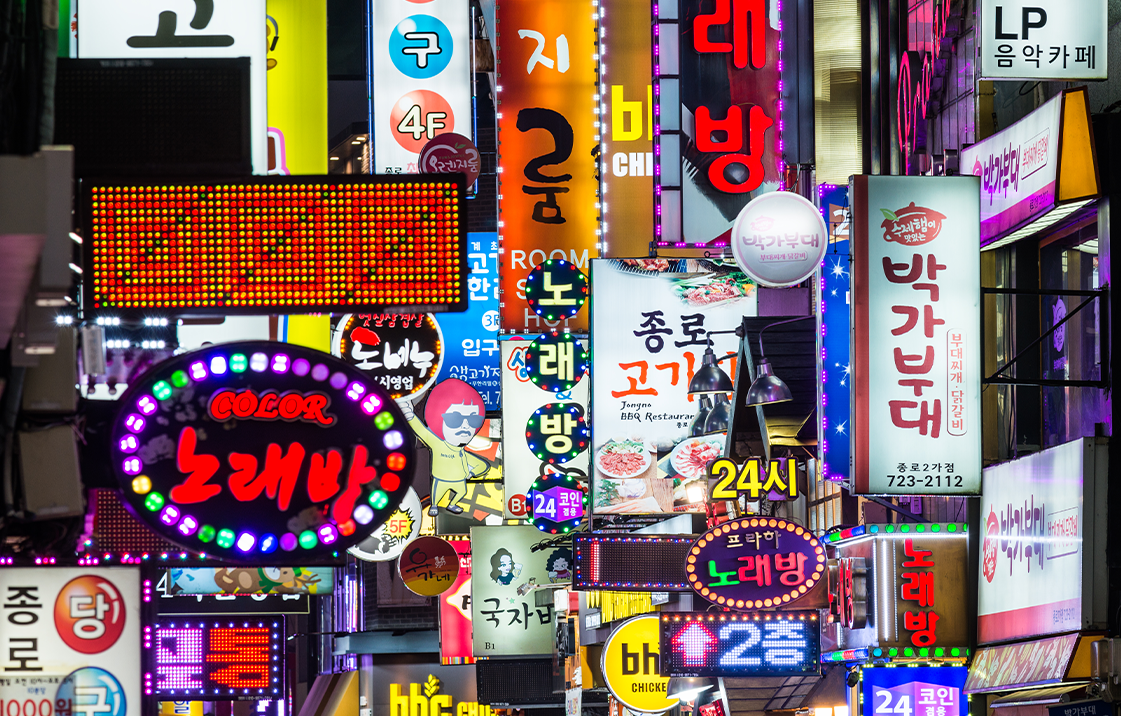
‘Korean’ vs ‘Ourlanguage’
Korean is a really challenging language to learn.
It’s ranked as a Category 5 language by the Foreign Service Institute alongside Japanese, Chinese (Mandarin and Cantonese), and Arabic, requiring around 88 weeks or 2,200 hours for a native English speaker to reach professional proficiency.
From raw personal experience as someone with full professional proficiency in Korean and who engages with students and academics in Korean Studies, I can confidently say that the difficulties faced by foreigners – even ethnic, non-native Korean heritage speakers – cannot simply be boiled down to language.
In fact, I think the more proficient you become the more you are exposed to potential deterrents – that may be better labelled ‘tribalistic’.

When I’ve worked on large-scale research projects funded by South Korean government organisations, it’s not uncommon to come across documents written in Korean that make it clear that you (the foreign collaborator) are a contributor rather than a significant or equal partner.
Guidelines, for example, may stipulate that something is written not in ‘Korean’, but in ‘Ourlanguage’ – a proper noun referring to the Korean language that can only be used by ethnic Koreans.
There is, in fact, a whole range of ‘Our’ neologisms. They range from ‘Ournation’ (‘Korea’ or more specifically ‘South Korea’ or ‘North Korea’, depending on the speaker) to ‘Ourpork’ (Korean pork) and ‘Ouralcohol’ (Korean spirits).
All of which can only be used by people who are ethnically Korean (specifically ethnic Koreans from South Korea) or, occasionally (to the dismay of some) naturalised Koreans.
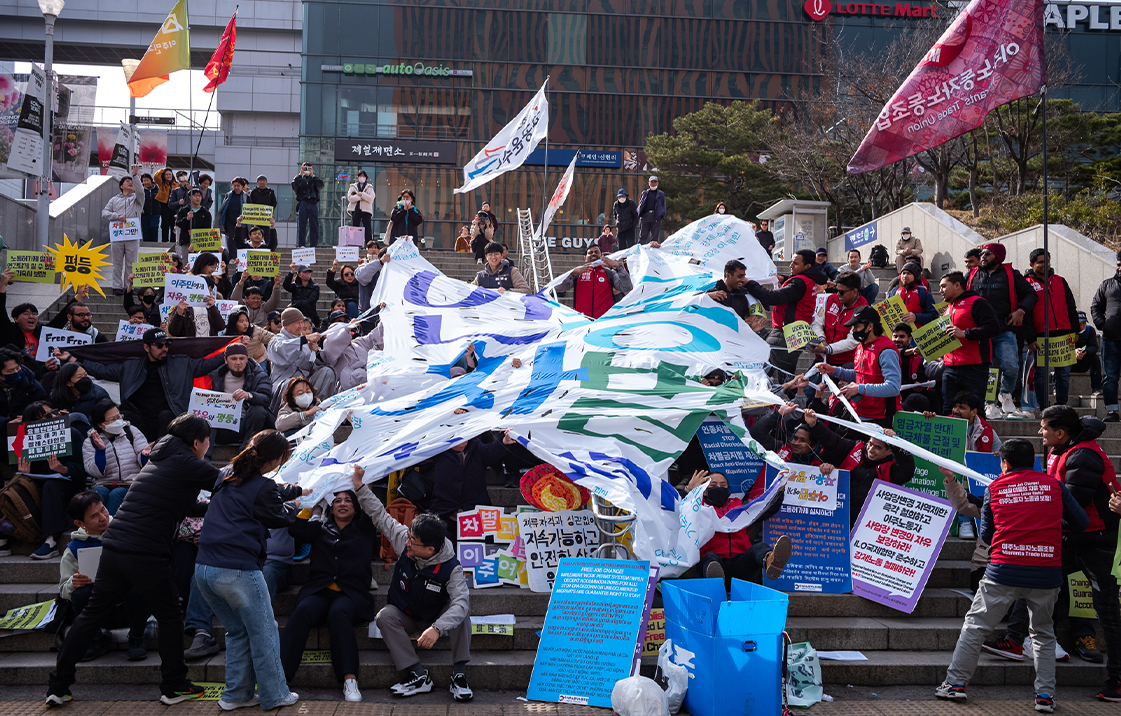
This is all at odds with South Korea’s aspirations and vision for globalisation and leadership via popular culture. South Korean leaders have explicitly outlined their soft-power goals time and time again as part of their nation-building agenda.
While there is nothing wrong with national pride and patriotism, what sets South Korea apart from most other nations actively aspiring to globalise their popular culture is a deeply ingrained and openly expressed ethnic nationalism we can see in examples like the use of language.
This is a ‘shot in the foot’ that can only detract from the Korean Wave and other cultural exports or, at the very least, global cultural exchange and input from the ‘outside world’.
It is something that I’ve experienced, as have many of my colleagues and students – all people who have dedicated much of their time to engaging with South Korean society and promoting South Korean culture and language.
It’s up to the South Korean government to be more proactive in fostering social reform through more diversity and inclusion at all levels of education – while also working to not further radicalise the language.

Arts & Culture
‘The Man’: Taylor’s feminism could go so much further
Input from outsiders
Some small steps have been taken, but in many cases these are internalised with almost no substantial input from ‘outsiders’.
Just last month, South Korea’s Ministry of Culture, Sports and Tourism (MCST) and the Korean Foundation for International Cultural Exchange (KOFICE) held the ‘Forum on Understanding Hallyu Acceptance and Cultural Diversity’.
The post-forum press release noted that: “Hallyu content has solidified its status as a global pop culture phenomenon based on its high popularity.
"However, issues such as distorted depictions of specific cultural zones or countries, cultural appropriation without understanding or respecting other cultures, and controversies over cultural property are also arising.
"Cultural diversity will be a crucial orientation for the identity and sustainable expansion of Hallyu."
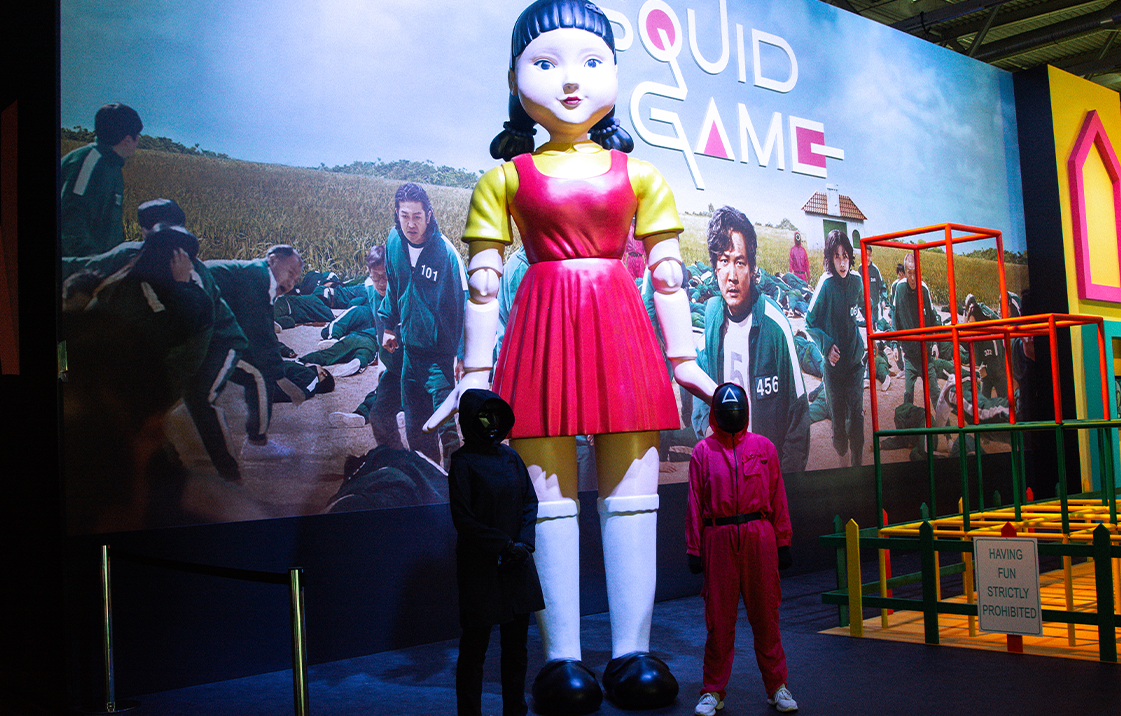
But all of the experts from “various academic fields … and industry” in the report are ethnic Koreans, with the only outside representation described as “three international students from Myanmar, Italy, and Iran who participated in the 2023 Global Culture Planning Team ‘Outlookie’”.
What is really needed is not just a panel on encouraging diversity and inclusion in the Korean Wave (to make it more marketable), but directly addressing the much deeper and profound issues coming from within South Korean society.
International fans of K-Pop are known for their social activism, standing up to racism and extremism.
So, a government-led initiative with real input from the international community would not only aid in preventing the Korean Wave from going K-aput, but also ensure a more inclusive and open South Korean society – one where ‘we’ all feel welcome.
This article was first published on Pursuit. Read the original article.